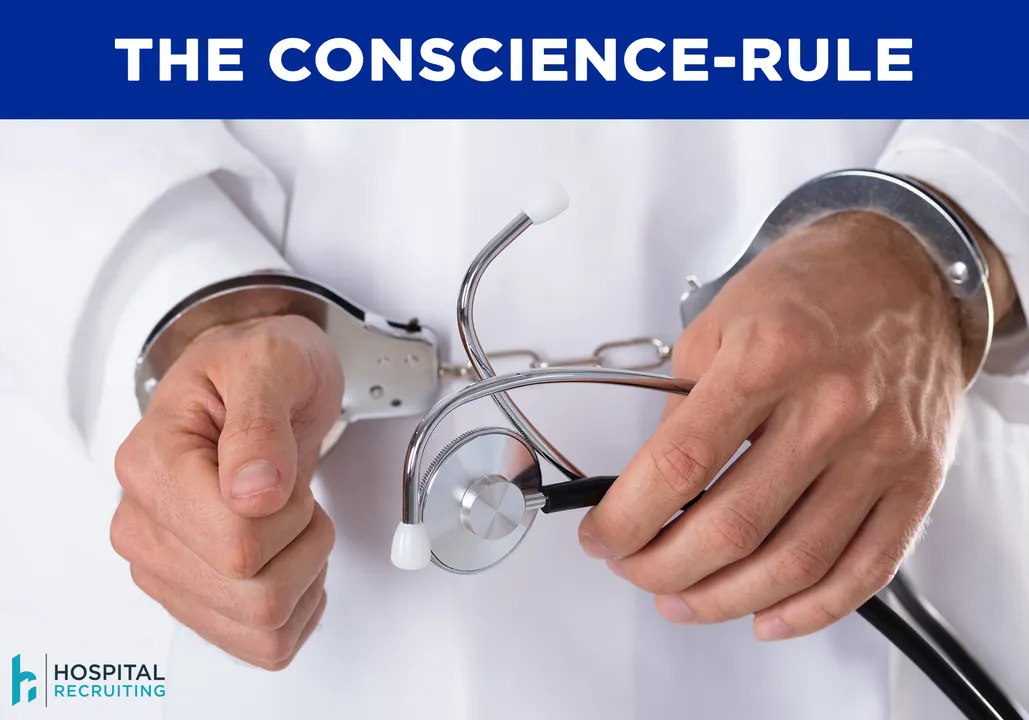The Conscience Rule and Why Doctors Need to Be Aware
Summary
In June of 2022, the United States overturned Roe vs Wade, which returned laws regarding abortion rights to each individual state. This highly controversial motion sent ripples throughout the world, as some celebrated and others despaired. This article is unbiased and takes no sides; however, it will explain some of the legislation that followed in rapid succession.
The midterm elections focused mostly on inflation, rising prices, public safety, the impending recession, and you guessed it: Abortion.
Many states did maintain and ensure the right to an abortion, such as Virginia, Minnesota, Michigan, and New Mexico. Some states placed bans on the age at which an abortion can be performed, like Texas and South Carolina (but SC just lifted the 6 week ban). Many states had trigger laws that immediately banned abortion, such as Kentucky, Louisiana, and Missouri, with no exceptions for rape or incest.
The FDA updated their guidelines to clearly note that the morning after pill (emergency contraception) is not an abortion pill, while moving to allow retail pharmacies (CVS and Walgreens) to offer abortion pills for the first time. In response, some states (like Tennessee) have made this illegal.
All of that is to say that laws are rapidly changing, and it’s critical for doctors to be wary of not only their decisions, but the advice they give. The House has now passed a bill subjecting physicians for up to five years in prison if they fail to resuscitate babies born alive during an abortion (this was already the standard of care, and exceedingly rare, but now there’s a prison sentence for violations).
It remains to be seen if this will make any headway in the Senate (unlikely). This presents an impossible situation for physicians who need to induce a nonviable pregnancy. Any advice given in this circumstance would subject the provider to criminal prosecution. Frederica Wilson, a Democratic Representative from Florida, recently shared her story of when her 7-month-old fetus spontaneously died. No one could/would induce her, and she carried the corpse of the fetus until 8-and-a-half months. She almost died.
What is the Conscience Rule?
In 2018 the U.S. Department of Health and Human Services (HHS) introduced the conscience rule, which would allow providers to choose not to perform a procedure (abortion, assisted suicide, sterilization, gender change, etc) on moral or religious grounds. It would also punish hospitals, clinics, and universities from penalizing providers for following their conscience. Many states challenged this, and the bill fell through in 2019.
Critics argued that this would negatively impact women’s health and the LGBTQI by promoting discrimination, and to withhold care, especially in a lifesaving situation, is illegal and immoral. On the other hand, forcing providers to violate their inner values and beliefs is also immoral. Many companies, in lieu of this, followed the statement issued by HHS, that each instance would and could be handled on an individual basis. Employers could make accommodations for providers in accordance with Title VII of the Civil Rights Act of 1964.
Until a nurse practitioner was recently fired from CVS for refusing to prescribe birth control, after working there for six years.
Until Dr. Caitlin Bernard faced death threats and law suits for performing an abortion on a 10-year-old rape victim in Indiana, despite being in compliance with all of the new laws.
Until physicians and dentists sued the Vermont Board of Medical Practice for forcing them to perform assisted suicide.
The Biden administration is pushing legislation to rescind the conscience rule entirely. This means as a physician, you will be forced to potentially do things that violate your conscience.
What Can You Do?
- Have a conversation with your current employer about how they plan to handle these rapidly changing laws. If their changes violate your conscience, then perhaps it’s time to start interviewing.
- When interviewing for jobs, take a stand, and be clear about what you are and are not willing to do. Protect yourself by getting everything in writing in your contract.
- Make your voices heard. Send letters to your local leaders. Politicians are making medication decisions without any medical education.
Politics are removing physicians’ decision-making ability at an increasing rate. We already sold our souls to health insurance. Will legislation be next?
Related Posts

